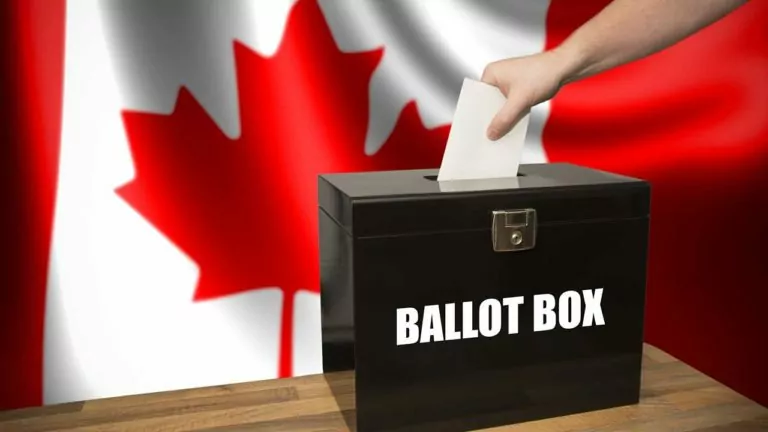Controversy over Scheer’s leadership win highlights just how blessed we are to have our unimpeachable federal electoral system
Days after Andrew Scheer won a close, final-ballot victory for the leadership of Canada’s Conservatives, questions were raised about the vote total. The Conservative Party reported that 141,362 ballots were counted, but in a list sent out to the different leadership candidates’ campaigns, it showed only 133,896 votes. Some from second-place finisher Maxime Bernier’s camp wanted to know, why the big difference? They were troubled because the two vote totals differed by 7,466, which was greater than the 7,049 votes that separated Scheer from Bernier.
Then came news that party director Dustin van Vugt has ordered, right after the votes were tallied, that all ballots be destroyed. It was becoming the stuff of conspiracy theories.
Fortunately, the answers that were demanded came quickly. Yes, the ballots had been destroyed, but a snapshot of each one still existed. The lower total on the list sent out to the campaigns was due, in part, to a block of about 3,000 votes from polls around Toronto not being entered into the Party database. The remaining difference, of about 4,000, was attributed to human error, as volunteers had to process 140,000 ballots in a very short time.
While these answers satisfied most, the Party’s reliance on an electronic record – retaining only a digital snapshot of each ballot instead of keeping the paper ballot itself – was a problem to some. As iPolitics columnist Michael Harris noted,
“Have you ever photo-shopped a snapshot? Let’s just say digital images aren’t necessarily the last word in reality.”
Harris doesn’t seem to like the Conservative Party, so he may be looking for ways to cast doubt on the results. But it’s important to note, it’s the Conservative’s reliance on electronic records that allowed Harris to stir up doubt.
The need for accountability
On June 6 Maxime Bernier tweeted his “unconditional” support for “our new leader Andrew Scheer,” which seems to have quieted the questions. But this controversy highlights how important it is for voters to be able to trust the reported results. An electoral system needs to be as transparent and accountable as possible. Why? Because, everyone, even unbelievers, know that Man is fallen, prone not only to sin, but also to make mistakes. Therefore, how very dangerous it would be to leave the vote counting up to a select unaccountable few. To protect from fraud, and from mistakes, there needs to be accountability.
Now, one reason questions about the Conservative leadership election came up is because the party used a complicated means of running the election – their ballot included 14 names. With that complexity came more opportunities for human error. The use of voting machines to count the ballots also raises questions as to transparency – how do we know the machines were working right?
One reason some of the questions were quickly answered was because the Conservatives tried to make their system accountable. They involved scrutineers – representatives from all of the campaigns – to monitor the ballot count. While there were some questions from the Bernier camp, other losing candidates were quick to say they had no such doubts.
Electronic voting requires us to trust blindly
This incident also highlights the strength of Canada’s federal electoral system. Some want to change it, and move to online voting, or electronic voting machines, because these methods are supposed to be easier and faster. But these counting computers also come with a complete lack of transparency. Did the computer count your ballot the right way? Or might there have been some sort of bug or error? How can anyone know?
While we can’t be certain as to how many errors occur, we do know they happen. In the US, where these machines are put to regular use it’s easy to find stories of voters who cast a ballot for one candidate but saw it being recorded for the other. There’s also the famous example of a precinct in the 2000 election that gave Al Gore a negative 16,022 vote total. This was caught, quickly, but what of the errors that aren’t so obvious?
A vote total is only as accurate as the counter, but these electronic counting machines are not open to scrutiny – their computer code is a proprietary secret. So when we make use of them we have to accept, on the basis of trust, that the programmers are both honest and completely error-free.
Canada’s system doesn’t require trust
Contrast that with our federal, incredibly simple, entirely transparent, system. No need for trust because everyone is held accountable. You arrive at the poll, you mark your ballot in secret, cast it in front of two witnesses, and then know that it will be counted in front of scrutineers from the competing parties. With that simplicity comes the confidence that your ballot, as it was cast, has been counted.
Our system allows us to do what few other countries can: we can verify the official government vote count independently. Because each ballot is counted by hand, in front of scrutineers from the Conservatives, Liberals, and often times the NDP too, that leaves us with as many as four different counts for each riding: the official one, and one from each party. And should there be any notable discrepancy between a party’s total and the government total, we can be sure they will let us know!
Around the world elections are plagued with accusations of ballot tampering and other shenanigans. Before the latest US presidential election Donald Trump was complaining that the system was rigged. The Democratic Party was accused of rigging their presidential nomination in favor of Hillary Clinton (and against second place finisher Bernie Sanders). It doesn’t matter if accusations are justified or completely unfounded – voters’ trust will be undermined if there is no way of proving the results reliable. We can see that in the Conservative leadership campaign too; despite all their efforts at transparency, they still had questions raised about the totals.
What a blessing it is, then, for Canada to have a federal electoral system that it is so simple, transparent, and accountable, that such accusations are simply unthinkable.











